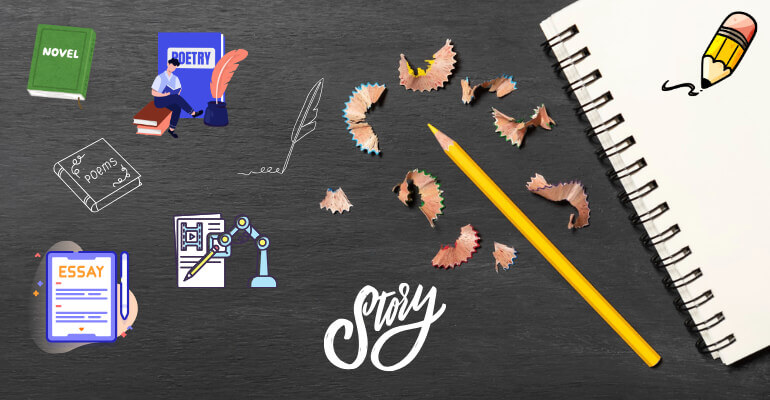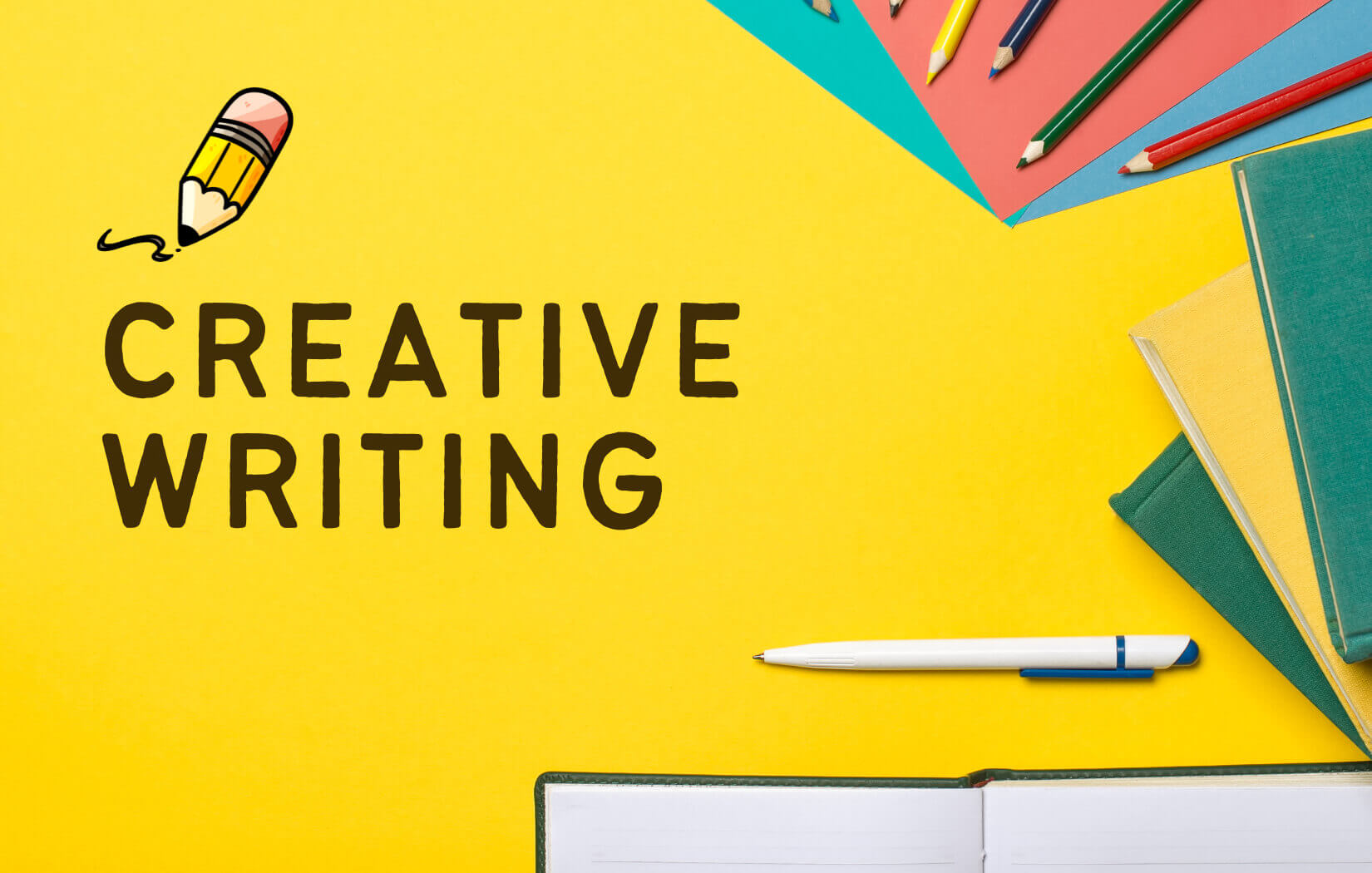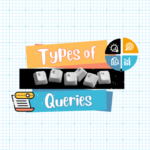Creative writing is an art form that expresses thoughts, feelings, and narratives through well-crafted words. Unlike technical or academic writing, which conveys information based on facts and a straightforward approach, creative writing delves deeper into the imaginative and emotional depths of the writer’s mind. It’s about storytelling and presenting ideas in ways that captivate and engage an audience, often evoking emotions and provoking thought.
Moreover, at The Zulfis, we understand the transformative power of writing. As a company with a rich history of nurturing innovation and creativity, we offer a platform where aspiring writers can explore their creativity without bounds. Whether painting vivid pictures with words in a poem or developing complex characters and intricate plots in a novel, we are committed to supporting writers in their creative journey, helping them unleash their potential and share their unique voices with the world.
The Essence of Creative Writing
Distinction from Other Forms of Writing
Creative writing stands apart from other types of writing due to its use of language to evoke emotions, create vivid images, and construct narratives that transport readers to different times, places, or realities. In contrast to academic or journalistic writing, which prioritizes clarity, objectivity, and factual reporting, creative writing embraces the author’s subjective perspective. Consequently, it often weaves personal insights, fictional elements, and imaginative scenarios. This freedom allows writers to explore complex themes and character depths in ways that factual writing does not permit.
Critical Characteristics of Creative Writing
The hallmark of creative writing is its emphasis on narrative craft, character development, and the poetic assembly of words. Additionally, it often involves:
- Imagination: Creative writing is grounded in the writer's ability to invent and fantasize.
- Expression: More than just conveying information, it expresses the writer's emotions and viewpoints.
- Originality: Each piece stands out with its unique voice and perspective, differentiating it from works of pure information dissemination.
- Aesthetic Elements: Literary devices such as metaphors, similes, and symbols enrich the text and enhance the reader's experience.

Examples of Creative Writing
Creative writing encompasses a range of genres and formats, each offering different ways to explore human experiences:
- Novels and Short Stories: Fictional narratives with characters, settings, and plots that offer escape and insight into human conditions.
- Poetry: Utilizes verse to evoke feelings and images in a condensed form, often utilizing rhythm and rhyme.
- Plays and Screenplays: Scripts for performance that bring characters to life through dialogue and action.
We encourage exploring these varied forms, providing novices and experienced writers with the resources and guidance to refine their craft. By fostering a supportive community, we aid writers in understanding these genres and mastering the art of storytelling across different mediums.
Stay updated with the latest blog and creative insights.
Types of Creative Writing
Fiction (short stories, novels)
Fiction writing is a cornerstone of creative writing that involves crafting narratives that stem from the imagination. Moreover, whether short stories or expansive novels, these narratives are characterized by plot, character development, and a structured storyline. Fiction writers can create entirely new worlds or mirror the real world with a twist of fantasy or intrigue, providing a canvas to explore complex human emotions and societal issues.
Poetry
Poetry is one of the most expressive forms of creative writing. Additionally, it distills emotions and ideas into concentrated, often rhythmic language. Poets use meter, rhyme, and metaphor to create dense, powerful texts that convey a broad spectrum of thoughts and sensations within a few lines. Furthermore, poetry can range from highly structured forms, such as sonnets and haikus, to free verse, which eschews traditional patterns in favor of a more free-flowing expression.
Drama
Drama involves crafting scripts intended for actors to perform. In this unique form of creative writing, writers must consider dialogue, stage direction, and character interaction, often emphasizing conflict. Furthermore, dramas can be written for movies, television, or the stage. Importantly, the narrative is meant to be performed, bringing the writer’s words to life through the collaborative effort of directors, actors, and audiences.
Non-fiction (personal essays, memoirs)
Creative non-fiction is an often overlooked but equally vital category of creative writing. Moreover, it includes writing like personal essays and memoirs that utilize creative writing techniques to tell true stories. These works are factual; however, they contain the storytelling techniques of fiction and the poetic language of verse to explore personal experiences or real-world events with a narrative depth that traditional non-fiction lacks.
From personalized writing workshops to one-on-one mentoring, We offer various services to help you succeed.
The Creative Process
Inspiration and Ideation
The writing journey often begins with inspiration, a spark from personal experiences, overheard conversations, natural settings, or other artistic works. Subsequently, this initial spark leads to the ideation phase, where writers brainstorm and flesh out ideas into viable concepts for stories, poems, or other creative pieces. Therefore, we encourage writers to keep an open mind and record all their thoughts, as the most unexpected idea can transform into a compelling piece of writing.
Development of a Writing Habit
Developing a consistent writing habit is crucial for success in creative writing. Regular writing helps refine the craft and aids in overcoming writer’s block and other creative challenges. Moreover, reserving a specific time each day for writing, experimenting with different writing environments, and setting attainable goals can all help cultivate a productive writing routine. Also, we support this by providing resources and workshops that help writers establish and maintain their writing practices.
Revising and Editing
Once the first draft is complete, the revision process begins. At this stage, the focus is refining the work, enhancing its flow, and ensuring the narrative effectively captures the intended message or emotion. Furthermore, editing may involve reworking large text sections, correcting grammar, and fine-tuning dialogue. Importantly, critical feedback from peers or mentors at The Zulfis can provide valuable insights to improve the manuscript.

Why Creative Writing Matters
Benefits of Creative Writing
Creative writing is not solely an artistic pursuit. Instead, it serves numerous practical and psychological benefits. For instance, it enhances cognitive and communication skills by encouraging clear expression and structured thinking. Moreover, for individuals, it can be a therapeutic exercise that aids in processing personal experiences, emotions, and even trauma in a healthy way. Additionally, creatively engaging with writing boosts imagination and problem-solving abilities, skills that are invaluable in personal and professional realms.
Therefore, we recognize the transformative power of writing. Consequently, we encourage our community to use this to tell their stories and develop many skills to improve their overall quality of life and professional capabilities.
Creative Writing in Education
Creative writing is increasingly recognized in educational settings for its value in developing students’ critical thinking and literacy skills. Schools and universities encourage students to engage in creative writing to understand better narrative structures, character development, and the effective use of language. Moreover, the skills gained from creative writing, such as empathy and the ability to articulate complex ideas clearly, are highly valued in any professional field.
Over to You
Ultimately, The Zulfis aims to contribute to a more imaginative and expressive society by promoting creative writing. Moreover, everyone has a unique story to tell, and it's a key to unlocking creativity, empowering individuals, and fostering a deeper understanding of the human experience.
Have questions or need support? Reach out to us. We’re here to help you unlock your creative potential.



